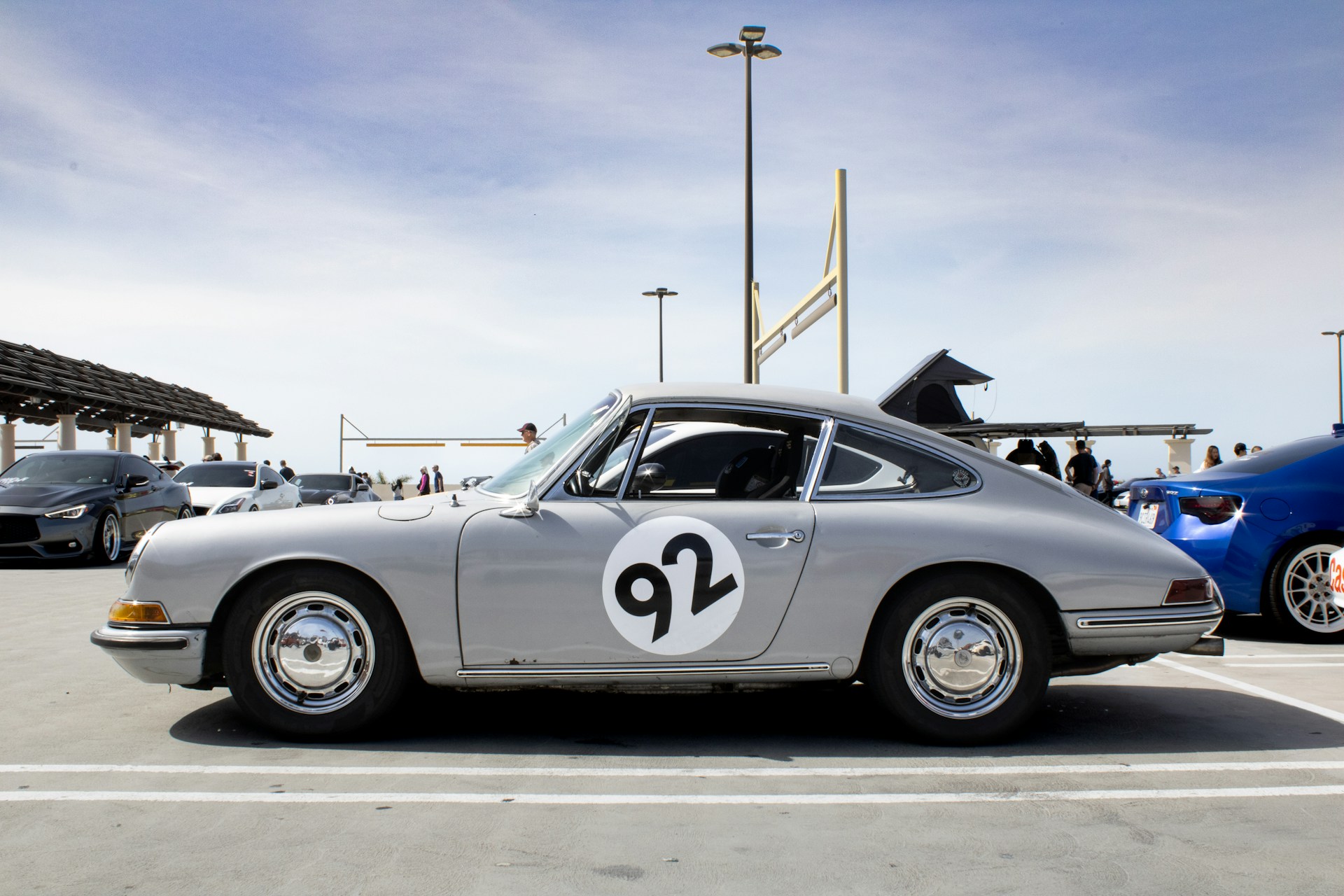The Beginning Of An Icon
In the world of classic sports cars, few names command as much reverence—and consistent market heat—as the early short-wheelbase (SWB) Porsche 911. Built from 1965 through 1968, these first-generation air-cooled icons laid the groundwork for six decades of 911 evolution, yet remain wholly their own: lightweight, lively, and unapologetically analog.
If you’re in the market, you’ve probably felt the sticker shock. Even a humble 911T in driver-grade condition now hovers around $70,000 USD. A clean 911S? That’s closer to $185,000. And if you're dreaming about the mythical 911R, you'd best come armed with an auction paddle and a seven-figure bank account.
So why are these cars worth so much—and why are they still so appealing to drive?
A Purist’s Porsche
First, the basics. All SWB 911s share a 2.0L air-cooled flat-six and a 2,211mm wheelbase—about 2.4 inches shorter than what came after. That may not sound like much, but the effect is profound: less stability at the limit, sure, but a kind of twitchy immediacy that makes them feel more like a sports car from the 1950s than the Autobahn missiles Porsche would later build.
Early cars (1965–66) were simply “911s,” offering about 130 hp, a charmingly sparse interior, and optional Webasto heaters that may or may not remain functional today. By 1967, Porsche rolled out the more potent 911S (160 hp, Fuchs wheels, vented discs), followed in 1968 by the softer 911L and entry-level 911T. The 911R, of course, was a factory-built racer—only 20 made, complete with fiberglass panels and a race-derived engine. If you see one on the road, count your blessings (and go buy a lottery ticket while your luck is running).
What SWB 911's Are Worth Today
Market values for SWB 911s have climbed steadily over the past two decades, buoyed by low production numbers, analog charm, and increasing interest in vintage driving experiences that don’t require track-day commitment or concours budgets. Driver-grade cars (Hagerty Condition #3) still command strong money, especially with originality, history, and desirable options in the mix.
To establish accurate pricing for SWB Porsche 911 models from 1965 to 1968, we conducted a comprehensive survey of current North American market data. Sources included the Hagerty Price Guide, recent auction results from Bring a Trailer, RM Sotheby’s, and Gooding & Co., as well as listings from specialty classic car dealers and verified private sales. All values reflect well-maintained, driver-grade examples with consideration given to originality, rare options, and historical significance. U.S. prices were converted to Canadian dollars using current exchange rates at the time of publication.
Here’s a look at what these cars are trading for today in the North American market:
Co-Ownership Enables Automotive Passion
Of course, even if your heart says yes, your bank account (or your spouse) might say no. That’s where Archipelago comes in.
Archipelago makes it possible for small groups of enthusiasts to co-own vehicles like the SWB 911—whether it’s a base ’66 coupe or a soft-window 911S Targa. Through a carefully structured ownership model, each co-owner gets direct equity, clear usage rights, and only has to pay for their portion of upkeep, insurance, and storage. In other words: less cost, less hassle, and more time behind the wheel of a truly special car.
Go ahead and ask us to start a SWB 911 Archipelago group in your city today.
You’re not renting. You’re not borrowing. You’re an actual co-owner of the car, with a legally-owned stake and the freedom to drive it regularly without the burden of going it alone. You can even sell your share for market value when it's time pass along the experience of owning and driving a first generation 911 to someone else.
And with values holding strong—or rising steadily—it’s not just a more affordable way to enjoy the car, it's the smartest.
A Classic, Democratized
The SWB 911 remains one of the most revered chapters in Porsche’s history—not just for collectors, but for drivers. It’s a car that rewards finesse, demands involvement, and turns even a grocery run into a proper event.
By lowering the barriers to entry through co-ownership, Archipelago is making it possible for more people to experience the kind of analog driving pleasure that used to be the sole domain of the very wealthy or the very mechanically inclined. If you’ve ever dreamed of owning a vintage 911, this might be your best excuse yet.
Just don’t lift off mid-corner.













































